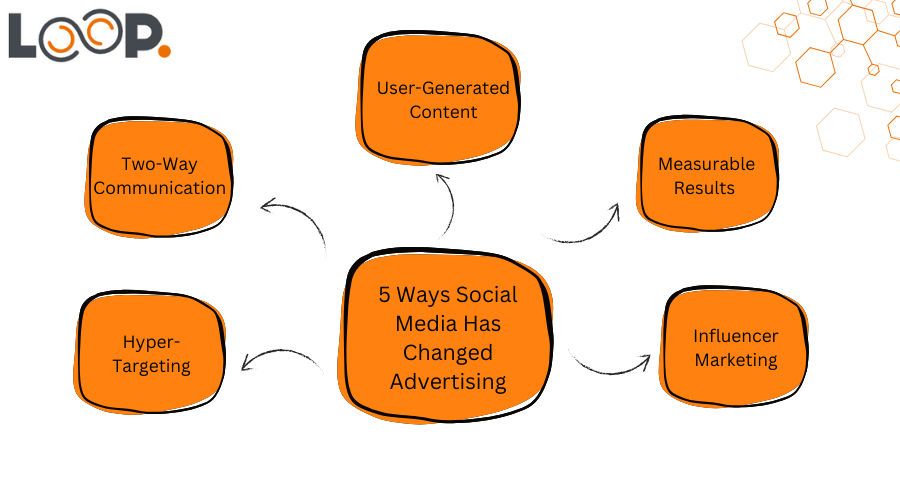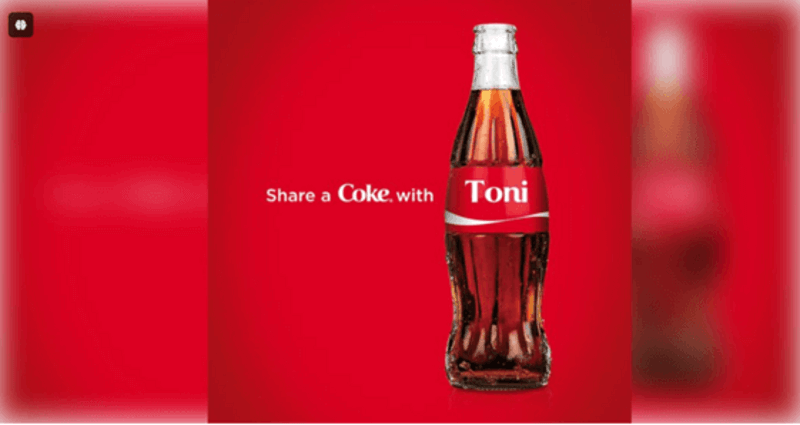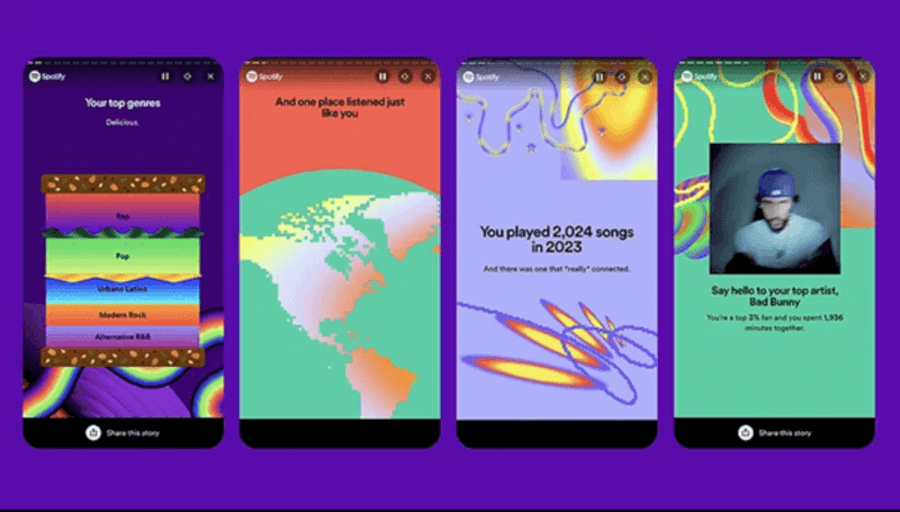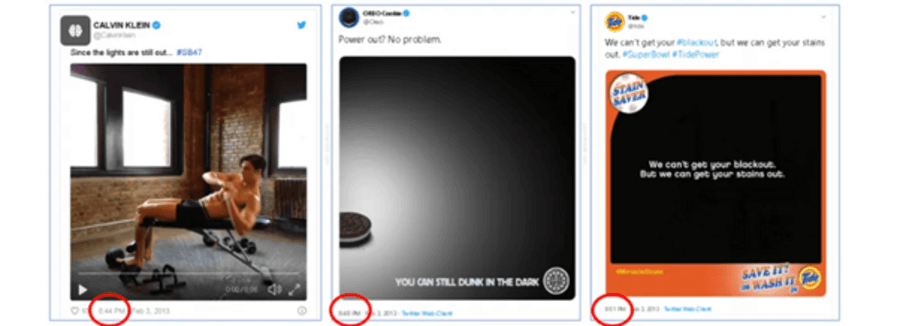Mel is our Partner Strategy & Delivery Manager and also a CIM Chartered Marketer, a testament to her commitment to excellence in the field. But Mel’s contributions don’t stop at the office door. Beyond her professional endeavours, she leads an active life as a qualified run leader and dedicated volunteer. Her experience in these roles has streamlined her leadership and teamwork skills, making her an invaluable asset when it comes to collaborating on projects and ensuring their success. Her sharp insights, strategic thinking, and knowledge have made her a backbone in our team’s ability to drive results for clients in this industry. Mel will make sure that we can approach marketing challenges from all angles and deliver outstanding results for our clients.
Posted on 24/04/2020 by Melanie Comerford
How has Social Media Changed Marketing?
Updated: October 2024
The landscape of advertising has undergone a seismic shift over the past two decades. From the traditional realms of television, radio, and print media, we’ve witnessed a dramatic transition to the digital sphere, with social media advertising emerging as a game-changing force in the world of marketing and advertising. This evolution has not only transformed how brands communicate with their audiences but has also redefined the very nature of consumer engagement and brand relationships.
Social media has revolutionised the advertising landscape, offering brands new opportunities to connect with consumers in more targeted and engaging ways. Here are 5 comprehensive benefits of social media advertising:
- Hyper-Targeting: Social media platforms possess vast amounts of user data, allowing advertisers to precisely target specific demographics, interests, and behaviours. This level of granularity ensures that ads reach the most relevant audience, increasing the likelihood of conversions.
- Two-Way Communication: Unlike traditional advertising channels, social media enables brands to have direct conversations with their customers. This interactive nature fosters stronger relationships, builds brand loyalty, and allows for real-time feedback and problem-solving.
- User-Generated Content: Social media has empowered consumers to become content creators. By encouraging user-generated content (UGC) through contests, challenges, or simply by engaging with their followers, brands can leverage authentic endorsements and create a sense of community around their products or services.
- Measurable Results: Social media platforms offer robust analytics tools that provide advertisers with detailed insights into campaign performance. Metrics such as impressions, clicks, engagement rates, and conversions allow for data-driven decision-making and optimisation.
- Influencer Marketing: The rise of social media influencers has created a new avenue for brands to reach their target audience. By partnering with influencers who align with their brand values, companies can tap into their followers’ trust and credibility to promote their products or services.

The Shift from Traditional to Social Media Advertising
The Digital Revolution in Advertising
The transition from traditional advertising methods to digital platforms has been nothing short of revolutionary. While television, print, and radio advertisements once dominated the marketing landscape, the rise of social media has fundamentally altered how brands reach and interact with their target audiences.
Ad spend and consumer behaviour trends
According to the Advertising Association/WARC Expenditure Report, digital ad spending in the UK reached £29.6 billion in 2023, accounting for 78.4% of total media ad spending. This marks a significant increase from 2022, when digital represented 76.7% of total ad spend. Social media advertising in particular has seen continued growth. In 2023, social network ad spending in the UK was estimated at £7.5 billion, up from £6.35 billion in 2022.
These figures reflect changing consumer behaviours. The average UK adult now spends over 3 hours per day on social media platforms, according to a 2023 report by Ofcom. This shift in attention has made social media an indispensable channel for brands looking to connect with their audience effectively.
The Essential Role of Social Media Platforms
Social media platforms have become the new town squares—digital spaces where consumers gather, share information, and engage with brands. For businesses, these platforms offer unprecedented opportunities to reach highly targeted audiences, build brand awareness, and foster customer loyalty.
The interactive nature of social media allows for two-way communication between brands and consumers, a stark contrast to the one-way messaging of traditional advertising. This dialogue has become a cornerstone of modern marketing strategies, enabling brands to receive instant feedback, address customer concerns in real time, and build communities around their products or services.
Key Features of Social Media Advertising
Targeting Capabilities
One of the most revolutionary aspects of social media advertising is its sophisticated targeting capabilities. Unlike traditional advertising methods, which often rely on broad demographic data, social media platforms allow for hyper-targeted advertising based on a wealth of user data.
Facebook, for instance, offers advertisers the ability to target users based on:
- Demographics: Age, gender, education level, job title
- Interests: Hobbies, favourite entertainment, shopping habits
- Behaviours: Purchase history, device usage, travel patterns
- Location: Down to specific postcodes or radius around a point
- Connections: Friends of people who like a page or event
This level of granularity allows brands to create highly personalised ad experiences. For example, a UK-based outdoor gear company could target ads for waterproof jackets to 25-35-year-old hiking enthusiasts living in rainy regions of the country who have recently searched for camping equipment.
The effectiveness of this targeting is evident in the numbers. According to a report by Retail Touch Points, 76% of consumers have purchased a product they saw in a brand’s social media post. This high conversion rate is largely attributed to the relevance of ads served to users based on their specific interests and behaviours.
Engagement and Interaction
Social media advertising has transformed the relationship between brands and consumers from a monologue to a dialogue. This shift has several key implications:
- Direct Communication: Brands can now engage in real-time conversations with their audience, addressing questions, concerns, and feedback immediately.
- User-Generated Content: Social media encourages customers to create and share content related to brands, providing authentic testimonials and expanding reach organically.
- Community Building: Brands can foster communities around their products or values, creating loyal customer bases that act as brand ambassadors.
- Instant Feedback: Companies can quickly gauge public reaction to new products, campaigns, or initiatives, allowing for agile marketing strategies.
A study by Sprout Social found that 78% of consumers are more willing to buy from a brand after having a positive interaction with them on social media. This underscores the importance of engagement in driving not just brand awareness but also conversions.
Cost-Effectiveness
Social media advertising often provides a more cost-effective alternative to traditional advertising methods, especially for small to medium-sized businesses. Here’s a comparison:
- Television Advertising: A 30-second prime-time TV ad in the UK can cost anywhere from £10,000 to over £100,000, depending on the channel and time slot.
- Print Advertising: A full-page ad in a national UK newspaper can range from £30,000 to £50,000.
- Social Media Advertising: Campaigns can be started with budgets as low as £5 per day, with the average cost-per-click (CPC) on Facebook in the UK ranging from £0.50 to £1.50.
Moreover, the return on investment (ROI) for social media advertising tends to be higher due to its targeting capabilities and engagement features. A survey by Hootsuite found that 30% of marketers believe social media provides the highest ROI compared to other marketing channels.
The cost-effectiveness of social media advertising is particularly beneficial for UK-based SMEs, which make up 99.9% of the business population. These companies can compete with larger corporations on a more level playing field, reaching their specific target audiences without the need for enormous advertising budgets.
Groundbreaking Social Media Marketing Tactics
Case Studies of Famous Companies
- Coca-Cola: Harnessing User-Generated Content
Coca-Cola’s “Share a Coke” campaign, which began in 2011 and has seen various iterations since is a prime example of leveraging social media and user-generated content. The campaign, which featured personalised Coke bottles with popular names, encouraged consumers to share photos of their named bottles on social media.

- Strategy: By replacing its logo with popular names, Coca-Cola created a personal connection with consumers and incentivised sharing on social platforms.
- Results: The campaign led to a 2.5% increase in soft drink sales, making it one of Coke’s most successful marketing initiatives. On social media, it generated over 500,000 photos shared with the #ShareaCoke hashtag on Instagram alone.
- Lesson: This campaign showcases how encouraging user-generated content can dramatically increase engagement and brand reach on social media platforms.
Share a coke :
2. Spotify: #2018Wrapped Campaign
Spotify’s annual “#Wrapped” campaign, particularly the 2018 iteration, stands out as a prime example of personalised, data-driven social media marketing that encourages user sharing and engagement.

- Strategy: Spotify leveraged its vast trove of user data to create personalised year-end summaries for each user, showcasing their listening habits, top artists, and favourite genres. These summaries were designed to be easily shareable on social media platforms, making it simple for users to post their unique music experiences.
- Results: The campaign generated over 5 billion streams from Wrapped playlists, demonstrating its widespread appeal and engagement. The hashtag #2018Wrapped trended globally on Twitter, highlighting the campaign’s success in capturing user attention and participation.
- Lesson: Spotify’s #Wrapped campaign showcases how brands can use their own data to create highly engaging, personalised content that users are eager to share on social media. This approach not only increases brand engagement but also leverages user-generated content to expand reach organically, turning users into brand advocates.
Sing along with Spotify:
- Oreo: Real-Time Marketing Agility
Oreo’s “Dunk in the Dark” tweet during the 2013 Super Bowl blackout is often cited as a watershed moment in real-time social media marketing.

- Strategy: When a power outage occurred during the Super Bowl, Oreo’s social media team quickly created and posted an ad with the tagline “You can still dunk in the dark.”
- Results: The tweet garnered nearly 15,000 retweets and 20,000 likes on Twitter, generating significant buzz and media coverage.
- Lesson: This case study highlights the importance of agility in social media marketing. Brands that can react quickly to current events or trends can create highly engaging content that captures public attention.
Twist, lick, dunk, watch:
These tactics exemplify successful social media strategies by emphasising key elements:
- Encouraged active participation from consumers
- Creating authentic, emotionally resonant content
- Leveraging current events and trends for timely engagement
- Utilising the unique features of different social media platforms
Theoretical Frameworks in Social Media Advertising
Understanding the theoretical underpinnings of consumer behaviour on social media can help marketers create more effective advertising strategies. Two particularly relevant theories are the Uses and Gratifications Theory and the Theory of Reasoned Action.
Uses and Gratifications Theory
The Uses and Gratifications Theory (UGT) posits that individuals use media to satisfy specific needs or desires. In the context of social media, this theory helps explain why people engage with certain types of content and ignore others.
Key gratifications sought on social media include
- Information seeking: Users look for news, knowledge, and updates.
- Entertainment: People use social media for enjoyment and relaxation.
- Social interaction: Platforms facilitate connection with friends, family, and like-minded individuals.
- Personal identity: Users express themselves and reinforce personal values.
Implications for Advertising:
- Content should align with these gratifications to increase engagement.
- Ads that provide value (information, entertainment, or social currency) are more likely to be well-received.
- Tailoring content to specific platform demographics can increase effectiveness.
Know more:
Theory of Reasoned Action
The Theory of Reasoned Action (TRA), developed by Fishbein and Ajzen, suggests that a person’s behaviour is determined by their intention to perform the behaviour. This intention is influenced by:
- Attitudes: Personal evaluation of the behaviour
- Subjective Norms: Perceived social pressure to perform or not perform the behaviour
Implications for Social Media Advertising:
- Ads should aim to create positive attitudes towards the brand or product.
- Leveraging social proof (e.g., user reviews, and influencer endorsements) can influence subjective norms.
- Call-to-actions should be clear and align with users’ existing attitudes and social norms.
Know more:
Future Trends in Social Media Advertising
As technology continues to evolve and consumer preferences shift, the landscape of social media advertising is set to undergo further transformations. Here are some key trends that UK-based companies should be aware of:
- Increased Use of AI for Targeting and Personalisation
Artificial intelligence and Machine Learning are becoming increasingly sophisticated in predicting consumer behaviour and preferences.
- Prediction: By 2025, 80% of marketers who have implemented AI will see a 25% improvement in customer satisfaction and a 20% increase in revenue, according to Gartner.
- Implication: UK companies will need to invest in AI-powered tools to stay competitive in ad targeting and personalisation.
- Rise of Video Content
Video content, particularly short-form videos, is dominating social media engagement.
- Statistic: TikTok has seen a 70% increase in the time users spend watching videos since 2020, according to a 2023 report by Business of Apps.
- Trend: Platforms like Instagram Reels and YouTube Shorts are following suit, emphasising the importance of short, engaging video content in advertising strategies.
- Augmented Reality (AR) Advertising
AR is moving from novelty to necessity in social media advertising.
- Prediction: The global AR market size is expected to reach $97.76 billion by 2028, growing at a CAGR of 31.5% from 2021 to 2028 (Grand View Research).
- Example: Brands like IKEA and Sephora are already using AR for virtual try-ons and product visualisations on social platforms.
- Social Commerce Integration
The line between social media and e-commerce is blurring, with platforms introducing native shopping features.
- Statistic: Social commerce sales in the UK are projected to reach £14.3 billion by 2024, according to eMarketer.
- Implication: Brands will need to optimise their social media presence for direct sales, not just engagement.
- Privacy-Focused Advertising
With increasing concerns about data privacy and regulations like GDPR, advertising strategies will need to adapt.
- Trend: Contextual advertising, which targets users based on the content they’re viewing rather than personal data, is likely to gain prominence.
- Challenge: UK companies will need to balance personalisation with privacy concerns to maintain consumer trust.
- Influencer Marketing Evolution
Influencer marketing is evolving from celebrity endorsements to micro- and nano-influencer partnerships.
- Statistic: 61% of consumers trust influencer recommendations, compared to 38% who trust branded social media content (Edelman Trust Barometer).
- Trend: Brands are likely to focus on long-term partnerships with influencers who align closely with their values and target audience.
- Emphasis on Social Responsibility
Consumers, particularly younger generations, are increasingly drawn to brands that demonstrate social responsibility.
- Fact: 71% of UK consumers prefer buying from companies that align with their values (Accenture).
- Implication: Social media advertising will need to highlight brands’ commitments to social and environmental causes.
To stay competitive in this evolving landscape, UK-based companies will need to:
- Continuously update their social media strategies to incorporate new technologies and trends.
- Invest in upskilling their marketing teams in areas like AI, AR, and data analytics.
- Stay agile and ready to adapt to new social media platforms and features as they emerge.
- Balance innovation with authenticity to maintain consumer trust and engagement.
The advent of social media has irrevocably transformed the advertising landscape, offering unprecedented opportunities for targeting, engagement, and cost-effective marketing. From the hyper-targeted capabilities that allow brands to reach specific audience segments to the interactive nature that fosters direct communication between companies and consumers, social media has redefined how businesses approach advertising.
Contact Loop Digital today!
Is your social media advertising delivering the results you need? In today’s fast-paced digital landscape, staying ahead of the curve is crucial. Loop Digital is your trusted marketing consultancy for social media advertising and a plethora of other services. Our team of experts can audit your current strategies, identify untapped opportunities, and craft tailored solutions to boost your ROI with a 30-minute free consultation. Don’t let your competitors outpace you online. Take the first step towards transforming your social media presence— contact Loop Digital today. Let’s elevate your brand, engage your audience, and drive real business growth together. Your success story starts with a simple message to us.
Looking for your next opportunity?
Digital marketing careers
We’re always on the lookout for talented individuals to join our ever growing team. If you think you’d be a great match for Loop Digital, we’d love to hear from you.

Join 300+ business owners getting weekly growth strategies - subscribe now.
"*" indicates required fields







